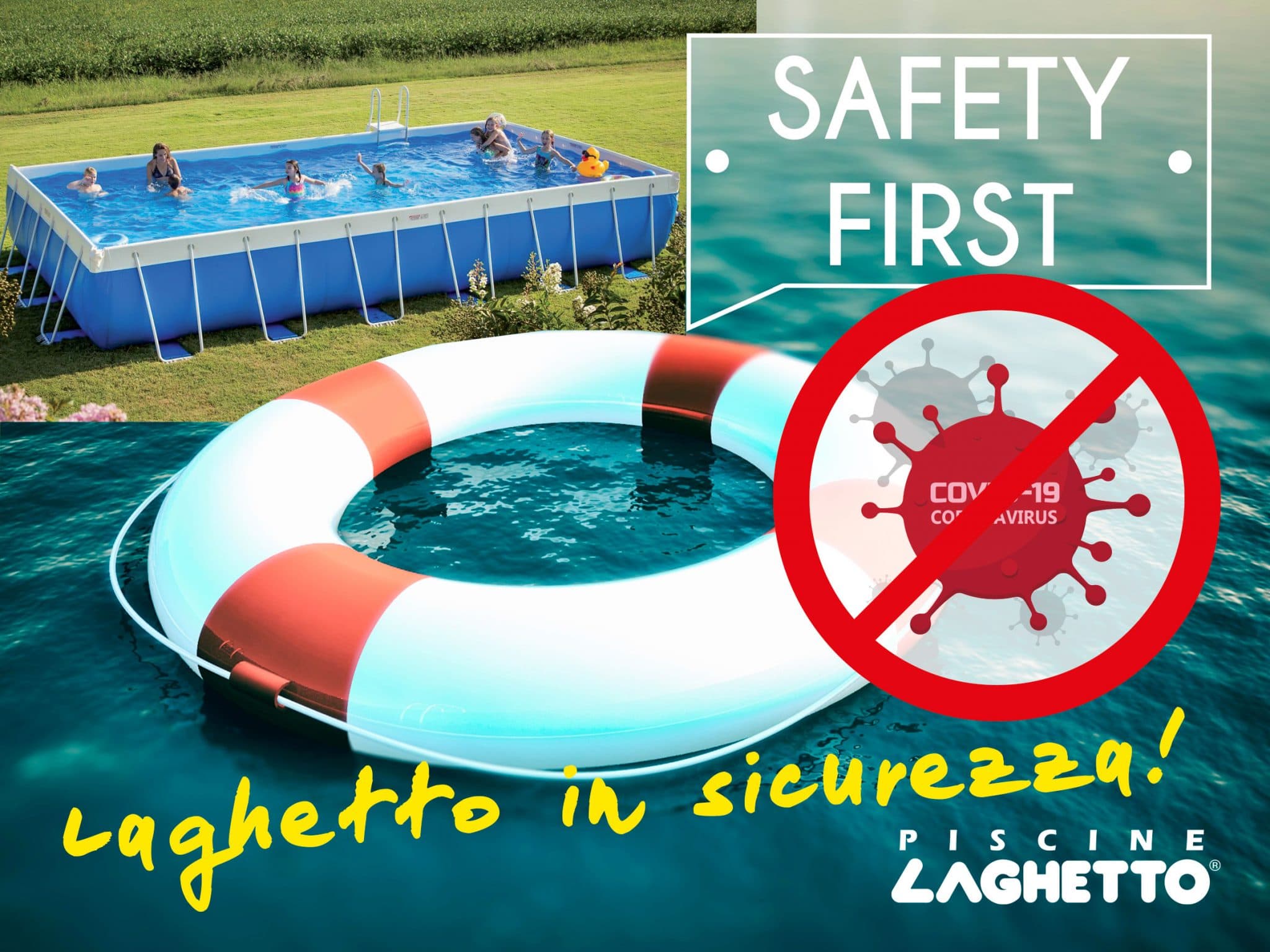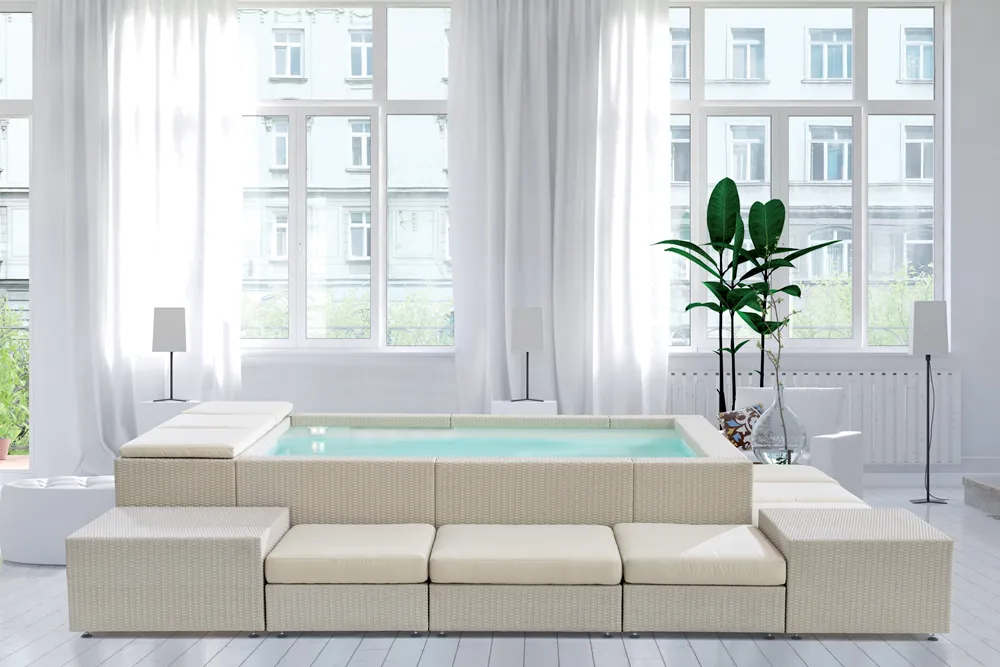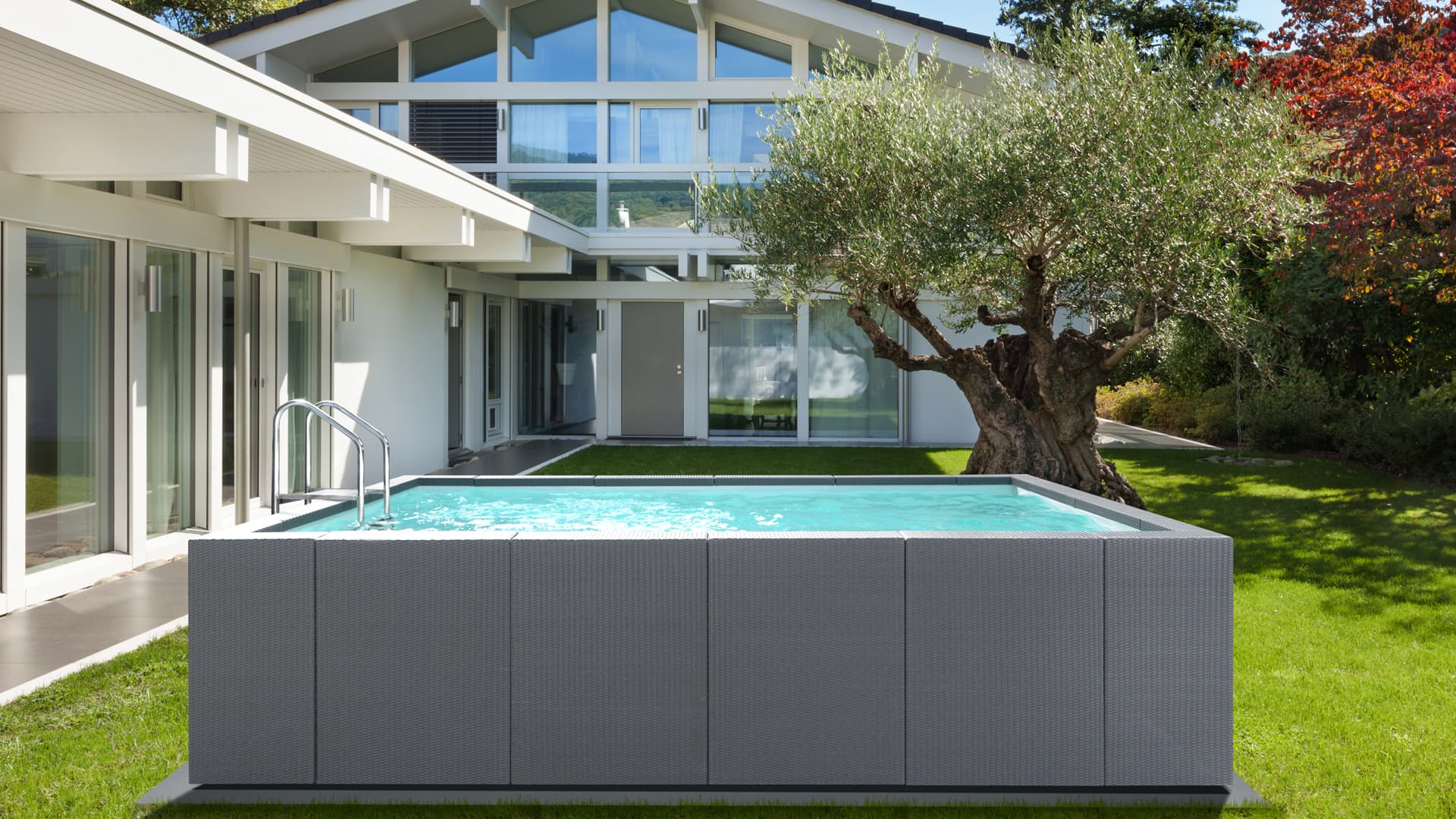
YOUR POOL, A SAFE PLACE

A PROPERLY TREATED POOL IS A SAFE PLACE
Hygiene and safety have become topics at the center of all our daily activities. From home life to work to moments of fun and relaxation. Our swimming pool is also a ‘hot’ spot on which we have often wondered about safety. But we can rest assured: if correctly treated, the pool is a safe place, also in relation to the coronavirus and its variants.
WHAT DOES ‘CORRECTLY TREATED’ MEAN?
In an average pool that has a good filtration and recirculation system, the values of chlorine (between 1 and 1.5 PPM) and pH (between 7.2 and 7.6) must be checked regularly. If the values do not fall within these parameters, they must be corrected with the appropriate products (add chlorine or chlorine abatement, pH + or pH- regulators).
To check the levels there are different types of instruments, from the simplest – such as the test strips to be immersed in water to immediately detect the values - to the most technological – such as digital analyzers that monitor the status of the water 24/24 h and transmit the values directly to the smartphone and automatically suggest the products and dosages to add.
If the chlorine level is within the indicated range, the pool is not only clean, but it is also disinfected and able to kill any virus or germ that enters the water.
The World Health Organization (WHO) states that a residual concentration of free chlorine that is greater than or equal to 0.5mg / l for at least 30 minutes in swimming pool water with a pH value below 8.0 is sufficient to kill the coronavirus.
HOW SHOULD CHLORINE BE ADDED TO THE WATER
For above ground skimmer pools, even the soft ones, chlorine must always be dosed according to the volume of water contained in them, following the instructions on the package. It is important to remember that chlorine should NEVER be put directly into the water because coming into contact with the liner it would cause irreversible discoloration. Instead, it should be placed in the skimmer basket or in the special floating dosers to let it melt slowly in contact with water without damaging anything.
GOOD PRACTICE
In addition to the chemicals related to water, there are also good practices to always keep in mind to ensure that the pool water is always clean.
First of all, personal hygiene and cleanliness are essential: take a shower before entering the water to avoid carrying sweat, sunscreen, dust or anything else with you; in the same way it is always advisable to wash the swimwear well after each use.
The areas around the pool must also be kept well washed and disinfected: entrance areas, beds, showers and stairs must always be clean and tidy.
It’s not difficult: a few simple tricks and the pool will be the safest place for summer fun!




